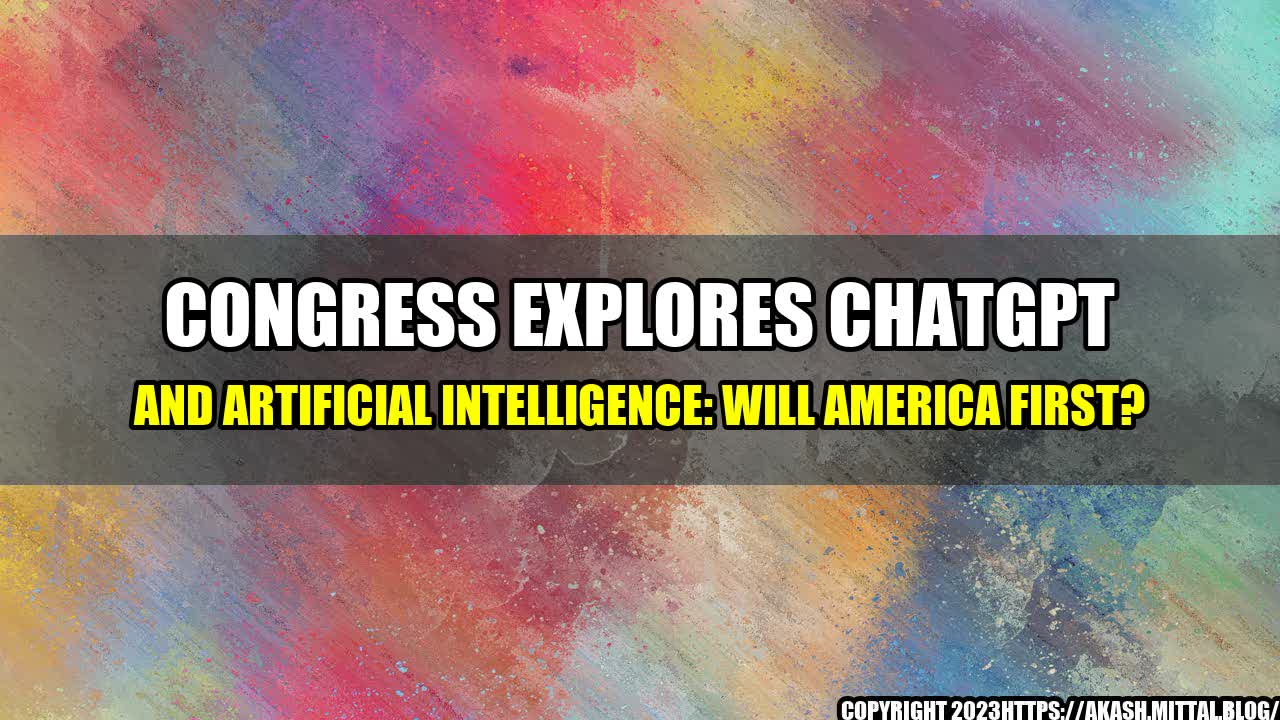Introduction: The Race for AI
It was a bright summer day in Silicon Valley when the executives at X-Tech announced their latest artificial intelligence breakthrough. Industry insiders had been eagerly awaiting the unveiling of ChatGPT, a machine learning system that used natural language processing to understand and respond to human speech.
As the presentation began, the audience was stunned by ChatGPT's ability to carry out complex tasks with ease and to provide insightful responses to even the most difficult questions. It was clear that ChatGPT represented a major step forward in the development of AI and that it had the potential to transform a wide range of industries, from healthcare to transportation to finance.
But as the applause died down and the X-Tech team began to field questions from reporters, a nagging doubt began to creep into the minds of many in the audience. Could the United States continue to lead in the global race for AI? And, if so, what steps would need to be taken to ensure that America remained at the forefront of this critical technology?
The State of AI in the United States
The development of AI has become an increasingly important issue in recent years, both in the United States and around the world. According to one estimate, global spending on AI is expected to reach $79 billion by 2022, up from just $24 billion in 2018.
Despite this growth, concerns have been raised about America's continued competitiveness in the field of AI. In a recent report, the National Security Commission on Artificial Intelligence warned that "China has positioned itself to challenge the United States as the world's leader in AI by 2030." The report cited China's investments in AI research and its development of advanced AI applications as reasons for concern.
In testimony before Congress, experts have argued that the United States must increase its investments in AI research and development if it hopes to remain competitive in the global AI race. They have also called for the creation of a national strategy for AI, which would coordinate efforts across government, academia, and industry to promote innovation and ensure that the benefits of AI are shared widely throughout society.
Despite these concerns, the United States remains a dominant force in the field of AI, with many of the world's top AI researchers, startups, and companies based in American cities like San Francisco and Seattle. The United States also has a strong record of pioneering breakthroughs in AI, from the development of self-driving cars to the creation of chatbots like Siri and Alexa.
The Role of ChatGPT in America's AI Strategy
One promising development in America's AI strategy is the emergence of ChatGPT, which has attracted the attention of researchers and policymakers alike. ChatGPT represents a major step forward in the development of AI, with the potential to bring the power of machine learning to a wide range of applications.
One area where ChatGPT may prove particularly valuable is in the field of customer service. By enabling machines to understand and respond to customer inquiries in natural language, ChatGPT could help reduce the burden on human service representatives, improving efficiency and reducing costs for businesses.
But the potential applications of ChatGPT go far beyond customer service. In fields like healthcare, finance, and transportation, ChatGPT could enable new applications that were previously impossible. For example, in healthcare, ChatGPT could be used to identify early warning signs of disease, while in finance, it could be used to analyze vast amounts of data to identify patterns and trends.
However, some have expressed concerns about the ethical implications of ChatGPT and other AI systems. In particular, there are worries about bias in AI decision-making, as well as the potential for AI systems to be used for surveillance or social control. As ChatGPT and other AI systems become increasingly ubiquitous, it will be important for policymakers to establish rules and guidelines that protect individual privacy and promote fair and ethical AI practices.
Conclusion: The Future of America's AI Strategy
As the global race for AI heats up, the United States faces significant challenges in maintaining its lead in this critical technology. However, with the emergence of breakthroughs like ChatGPT and the growing recognition of the importance of AI, there is reason to be hopeful about America's future in the field of AI.
At the same time, there are clear steps that must be taken if America is to continue leading in AI. These include increasing research and development funding, creating a national strategy for AI, and promoting ethical and fair AI practices. By taking these steps, America can ensure that it remains at the forefront of this critical technology and continues to shape the future of AI for the benefit of all.
- Increased investment in AI research and development
- Creation of a national strategy for AI
- Promotion of ethical and fair AI practices

Curated by Team Akash.Mittal.Blog
Share on Twitter Share on LinkedIn